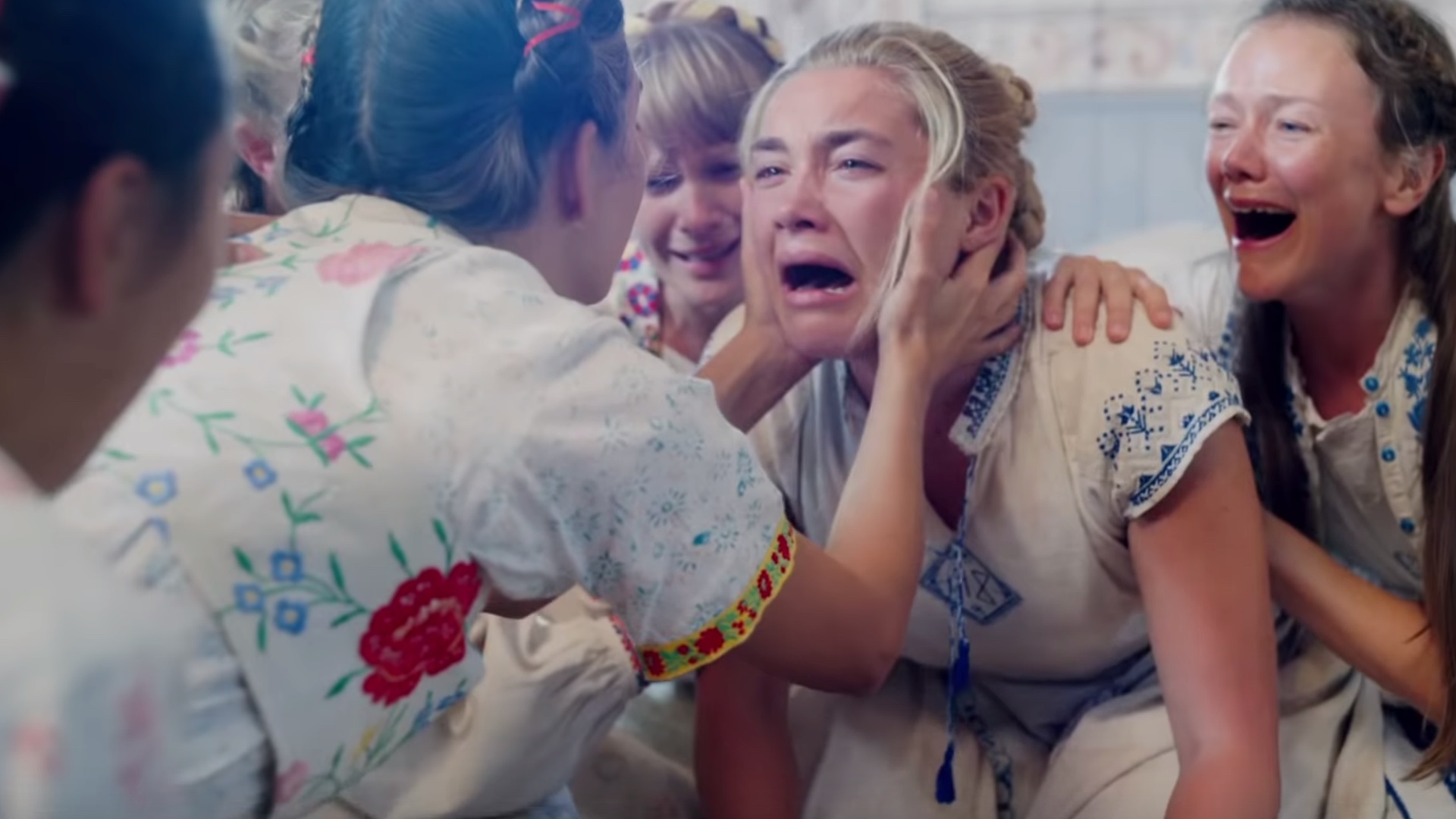GamesRadar+ Verdict
Midsommar features a standout performance from Florence Pugh and an expertly assembled atmosphere of dread, even if its lacks the propulsion and all-consuming terror of Hereditary.
Why you can trust GamesRadar+
Midsommar, the sophomore feature from writer/director Ari Aster, arrives in cinemas barely 12 months after Hereditary, his calling-card first feature. Hereditary wasn’t just an arresting and confident debut, it was also one of the best (and scariest) horror films of the decade. So, naturally, Aster’s follow-up comes burdened with expectation.
Tense and stylish, with rounded performances and a tragic twist, Midsommar’s opening 15-minute prologue is an absolute masterclass, and could even work as a standalone short. What it does in context, however, is set up the traumatic backstory of American woman Dani (Florence Pugh), before she embarks on a trip to a pagan summer-solstice festival in Sweden. She’s reluctantly invited by her boyfriend Christian (Jack Reynor), who was anticipating a lads’ holiday with his academic friends.
The festival is the backdrop against which this toxic relationship plays out, the isolation and almost constant daylight (the sun barely goes down at this time of year) becoming a crucible for the increasing weirdness. Dani, Christian and friends are the proverbial frogs in the pot, and it’s not long before the simmer becomes a rollicking boil, as the festivities escalate from quaintly odd to downright disturbing.
At its core, Hereditary had an absolutely astonishing performance from Toni Collette, and Aster here draws a nuanced, multilayered performance from Florence Pugh. Having already proven herself a serious talent, Midsommar is just further evidence that she’s the real deal. She walks a fine line as someone struggling to manage her own grief while also possibly being gaslit. The frequent hallucinogens the group consume (often intentionally) add to the disorientation.
Also as in Hereditary, Aster showcases a unique visual style, that feels like a distinct and fully formed trademark after just two features. From striking cuts, formal compositions, and carefully etched background clues, he’s a devil when it comes to detail. It’s a bold move to set a horror film mostly in daylight, and green fields and flower garlands are made to seem impressively ominous. And once again, there are a couple of shockingly gruesome moments that puncture the pastoral idyll.
It makes for an extremely immersive film experience, if not an absolutely terrifying one. Midsommar doesn’t stay entirely true to its ‘sunny horror’ conceit, as it uses the brief dusk period and shuttered cabins more than once. And what the extended running time gains in an enveloping, hypnotic atmosphere, it robs from the tension. It feels like a film that will reward future viewings, as Aster seeds clues throughout. But on initial reflection, it’s not entirely clear what Midsommar’s trying to say – its meditation on grief is diluted somewhat by academic rivalry – and it lacks a final knockout punch. The biggest surprise is the lack of a huge surprise; it doesn’t quite sear itself on to the subconscious like The Wicker Man, or indeed Hereditary.
Want more on Midsommar? TotalFilm spoke to an expert about how accurately Hollywood portrays some of cinema's most coercive cults

I'm the Editor at Total Film magazine, overseeing the running of the mag, and generally obsessing over all things Nolan, Kubrick and Pixar. Over the past decade I've worked in various roles for TF online and in print, including at GamesRadar+, and you can often hear me nattering on the Inside Total Film podcast. Bucket-list-ticking career highlights have included reporting from the set of Tenet and Avengers: Infinity War, as well as covering Comic-Con, TIFF and the Sundance Film Festival.



